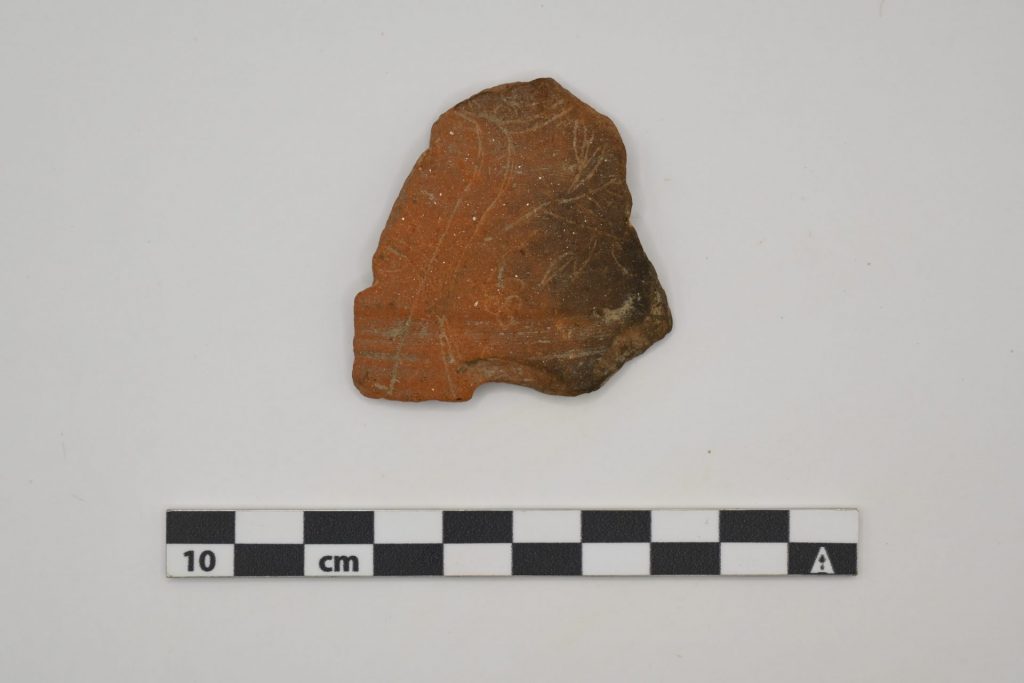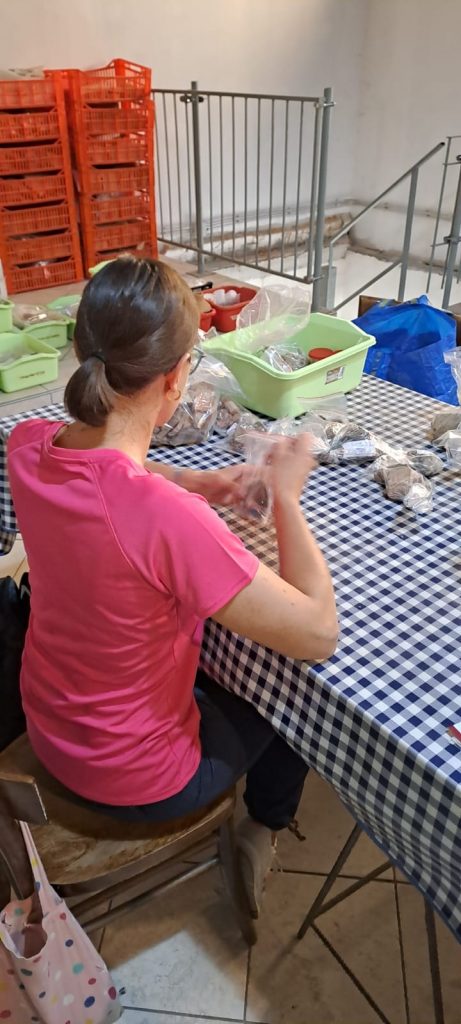Project CIRCE – Drivers of change in ancient circular economies over the longue durée



The Circular Economy is a sustainable economic model in which the activities of Repair, Reuse, and Recycling (the so‑called Three Rs) allow products to be reintroduced into society after their disposal. This model has attracted archaeological interest for decades, yet its study has never been systematic, as it has relied mainly on case studies with very limited chronological and geographical scope. Moreover, some circular processes—such as repair—have not been examined in sufficient depth and would require more rigorous investigation. As a result, our understanding of the Circular Economy in antiquity remains incomplete.
The CIRCE project (CIRcular Economies in Antiquity) aims to overcome the fragmentation that has characterized archaeological studies on the Circular Economy. Its main objective is to develop a research protocol capable of investigating all the principal circular economic processes (the Three Rs) over a long timespan (from the 1st to the 6th century AD), using data drawn from a wide variety of sites and contexts (cities, villages, households, craft activities). The project applies both qualitative and quantitative approaches to archaeological evidence, combining macroscopic and microscopic autoptic analyses (such as chrono‑typological study) with laboratory analyses, including chemical and isotopic testing on glass and ceramics. The methodology is being tested in northern Italy, with a focus on three main areas: Aquileia, Verona and its hinterland, and Cremona and its hinterland. This new approach makes it possible, for the first time at a regional scale, to explore the long‑term impact of circular economic processes on different communities and the factors that shaped their development in ancient societies.
The two‑year CIRCE project, launched in December 2023, is organized into two research units based at the University of Milan and the University of Verona. The research team includes Emanuele E. Intagliata (PI – UniMi), Diana Dobreva (Co‑PI – UniVr), Lorenzo Zamboni (UniMi), Anna Riccato (UniMi), Michele Pacioni (UniVr), and Sabrina Zago (UniVr). The project is funded by the Italian Ministry of University and Research (MUR) within the PRIN 2022 PNRR program.
Conferences and seminars
E.E. Intagliata, D.S. Dobreva, A. Riccato. Economia circolare nell’antichità. Un approccio integrato. Giornata di studi conclusiva del Progetto CircE (Sala Malliani, Università degli Studi di Milano, Milano, 4/11/2025).
- S. Sestito, “Torri d’avorio? Soprintendenze, Università e le implicazioni socio-economiche della ricerca archeologica”
- S. Di Tonto, “La collaborazione tra istituzioni per lo sviluppo della ricerca: il ruolo della Soprintendenza nell’esempio di Aquileia”
- D.S. Dobreva, E.E. Intagliata, “Project CIRCE– Drivers of change in ancient circular economies over the longue durée”
- N. Cecchini, A. Riccato, “Riuso e riciclo a Cremona: alcune questioni metodologiche e primi dati dallo scavo inedito di P.zza S. Angelo”
- A. Riccato, L. Zamboni, “Insediamento rurale ed economia circolare. Il caso di Calvatone-Bedriacum”
- M. Pacione, S. Zago “Riuso e riciclo tra città e territorio: il caso di Verona e del Veronese”
- D.S. Dobreva, M. Pacioni, A. Riccato, “Aquileia città sostenibile? Scenari di economia circolare nell’antichità”
- T.E. Birch, R. Andreasen “Preliminary results from elemental analyses of Late Roman/Byzantine glass from selected sites in northern Italy”
- L. Maritan “Il Progetto CIRCE: le analisi archeometriche sulla ceramica comune grezza”
- N. Garnier “Il progetto CIRCE: le analisi metabolomiche”
Emanuele E. Intagliata, Diana S. Dobreva, “Project CircE. Approaching Economic Circularity in Antiquity with a Longue Durée and Multi-Site Perspective”, 31st EAA Annual Meeting (Belgrade / online, 2–6 September 2025).
Anna Riccato, “Building on the Rubble: Discarded Pottery as a Resource in Roman Cremona and its Hinterland”, 31st EAA Annual Meeting (Belgrade / online, 2–6 September 2025).
A. Riccato, E.E.Intagliata. “Di necessità, virtù. Riuso, riciclo e riparazione di ceramiche a Calvatone”. Bedriacum in progress. Giornata di studi sui progetti in corso a Calvatone e nel Cremonese orientale (Museo Civico Ala Ponzone, Sala Puerari, Cremona – 30/05/2025).
D.S. Dobreva. Seminario dottorale “Esplorando il Po: sistemi commerciali ed economia circolare dall’età romana al Medioevo” (Università degli Studi di Verona, 07/04/2025):
- A. Riccato, “Calvatone tardoantica: produzioni, commerci ed economia circolare in un centro rurale tra Po e Oglio”.
- D.S. Dobreva, “Direttrici commerciali ed economia circolare lungo il Po”
- M. Pacioni, “Il sito extraurbano di Corte S. Antonio (Ostiglia). Dati sulle dinamiche commerciali tra prima età imperiale e tardoantico”
D.S. Dobreva. “Un vaso, mille vite. Il riuso della ceramica nel mondo antico” (Museo del Liviano, Padova, 20/03/2025)
E.E. Intagliata, Diana S. Dobreva, S. Barker. “Understanding the broader picture: multi-site and longue durée approaches to the study of recycling, repair, and secondary use in antiquity”. Sessione #139 al 30th Annual Meeting of the European Association for Archaeologists (Roma, 28-31 Agosto 2024):
- E.E. Intagliata “What’s next? Longue durée and multi-site approaches to economic circularity in antiquity”
- D. Dobreva “How the reuse and multiple-use of amphorae affected the circular economy in Roman times”
- A. Riccato “Stone recycling in pottery production: examples of sustainable practices in northern Italy and beyond”
E.E. Intagliata, A. Riccato. “Archeologia ed economia circolare. Come e quanto si riciclava nell’antichità?”, in Archeologia tra Adda e Mincio – Ciclo di conferenze ‘Luca Restelli’ 2024” (Visitors Centre Calvatone Bedriacum, Calvatone – 21/06/2024)
A. Riccato. “Chi rompe ripara: usi, riusi e riparazioni di contenitori ceramici nel mondo romano”, Non si butta via niente. Economie circolari nel mondo antico (ciclo di conferenze presso l’Università degli Studi di Padova – 12/06/2024)
E.E. Intagliata, Amedeo De Lisi, “Tra economia circolare e analisi geospaziali – nuove prospettive di ricerca per l’Archeologia Cristiana e Medievale all’Università degli Studi di Milano”, in IX Giornata della Ricerca del Dipartimento di Beni Culturali e Ambientali ‘Maria Teresa Grassi’” (Milano, Dipartimento di Beni Culturali e Ambientali, Università degli Studi di Milano – 23/05/2024)
